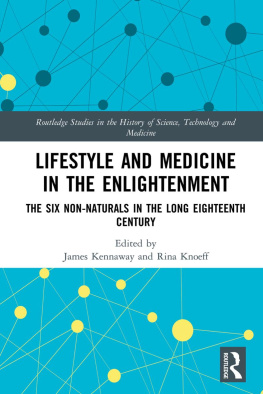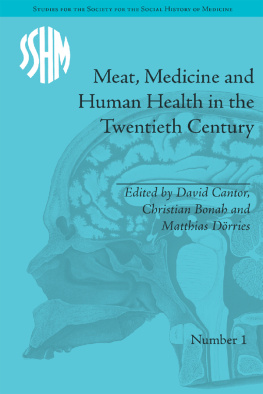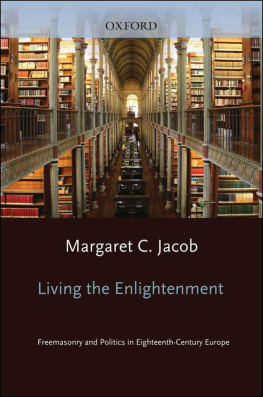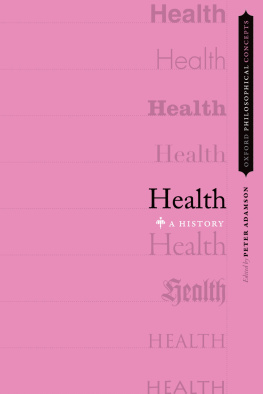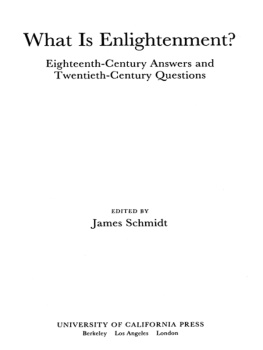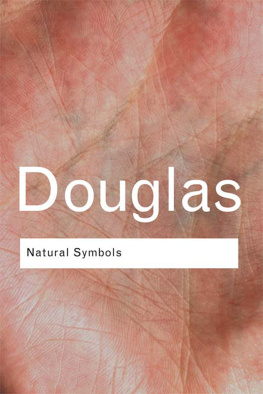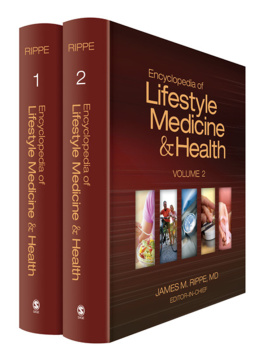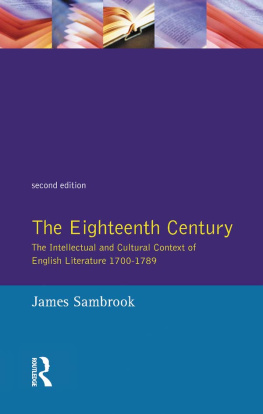Lifestyle and Medicine in the Enlightenment
The biggest challenges in public health today are often related to attitudes, diet and exercise. In many ways, this marks a return to the state of medicine in the eighteenth century, when ideals of healthy living were a much more central part of the European consciousness than they have become since the advent of modern clinical medicine. Enlightenment advice on healthy lifestyle was often still discussed in terms of the six non-naturals airs and places, food and drink, exercise, excretion and retention, and sleep and emotions. This volume examines what it meant to live healthily in the Enlightenment in the context of those non-naturals, showing both the profound continuities from Antiquity and the impact of newer conceptions of the body.
James Kennaway is Senior Research Fellow at the University of Roehampton. He is the author of Bad Vibrations: The History of the Idea of Music as a Cause of Disease, also published by Routledge.
Rina Knoeff is Associate Professor at the Faculty of Arts, University of Groningen, the Netherlands. She has published on the history of medicine, health and the body in the Enlightenment.
Routledge Studies in the History of Science, Technology and Medicine
36 Pioneering Health in London, 19352000
The Peckham Experiment
David Kuchenbuch
37 Soviet Science and Engineering in the Shadow of the Cold War
Hiroshi Ichikawa
38 Cold Science: Environmental Knowledge in the North American Arctic During the Cold War
Stephen Bocking and Daniel Heidt
39 Medical Memories and Experiences in Postwar East Germany: Treatments of the Past
Markus Wahl
40 Politics, Statistics and Weather Forecasting, 18401910: Taming the Weather
Aitor Anduaga
41 Social Class and Mental Illness in Northern Europe
Edited by Petteri Pietikinen and Jesper Vaczy Kragh
42 Medicine and Justice: Medico-Legal Practice in England and Wales, 17001914
Dr. Katherine D. Watson
43 Lifestyle and Medicine in the Enlightenment: The Six Non-Naturals in the Long Eighteenth Century
Edited by James Kennaway and Rina Knoeff
For the full list of titles in the series, please visit:
https://www.routledge.com/Routledge-Studies-in-the-History-of-Science-Technology-and-Medicine/book-series/HISTSCI
Lifestyle and Medicine in the Enlightenment
The Six Non-Naturals in the Long Eighteenth Century
Edited by James Kennaway and Rina Knoeff
First published 2020
by Routledge
2 Park Square, Milton Park, Abingdon, Oxon OX14 4RN
and by Routledge
52 Vanderbilt Avenue, New York, NY 10017
Routledge is an imprint of the Taylor & Francis Group, an informa business
2020 selection and editorial matter, James Kennaway and Rina Knoeff; individual chapters, the contributors
The right of James Kennaway and Rina Knoeff to be identified as the authors of the editorial material, and of the authors for their individual chapters, has been asserted in accordance with sections 77 and 78 of the Copyright, Designs and Patents Act 1988.
All rights reserved. No part of this book may be reprinted or reproduced or utilised in any form or by any electronic, mechanical, or other means, now known or hereafter invented, including photocopying and recording, or in any information storage or retrieval system, without permission in writing from the publishers.
Trademark notice : Product or corporate names may be trademarks or registered trademarks, and are used only for identification and explanation without intent to infringe.
British Library Cataloguing-in-Publication Data
A catalogue record for this book is available from the British Library
Library of Congress Cataloging-in-Publication Data
A catalog record has been requested for this book
ISBN: 978-1-138-61070-5 (hbk)
ISBN: 978-0-429-46564-2 (ebk)
Typeset in Bembo
by Deanta Global Publishing Services, Chennai, India
Contents
James Kennaway and Rina Knoeff
PART 1
Airs, waters and places
Rina Knoeff
Stephen Snelders
PART 2
Food and drink
Elizabeth A. Williams
Anita Guerrini
PART 3
Exercise and rest
James Kennaway and Rina Knoeff
Teresa Sanislo
PART 4
Sleep and wakefulness
Elizabeth Hunter
Roger Schmidt
PART 5
Excretion and retention
Michael Stolberg
Ruben E. Verwaal
PART 6
Passions and emotions
Wiebke Thormhlen
James Kennaway
Tessa Storey
Figures
Frontispiece Physical Advice by J. Harris, 1784
Table
Anita Guerrini is Horning Professor in the Humanities Emerita at Oregon State University. Her research focuses on the history of the early modern life sciences and medicine and on the histories of food, animals and the environment. Her most recent book, The Courtiers Anatomists: Animals and Humans in Louis XIVs Paris , won the 2018 Pfizer Prize of the History of Science Society.
Elizabeth Hunter is Wellcome Humanities Research Fellow at Queen Mary, the University of London, researching sleep disorders in the early modern period. She has published articles in Reformation and Renaissance Review (2013) and tudes pistm (2015). Her most recent essay was a contribution to Fear in the Medical and Literary Imagination , eds. D. McCann and C. McKechnie-Mason (2018).
James Kennaway is Senior Research Fellow at the University of Roehampton in London, having previously worked at universities including Oxford, Stanford, Durham and Groningen. He has written extensively on the history of medicine and the emotions, notably in his monograph Bad Vibrations: The History of the Idea of Music as a Cause of Disease .
Rina Knoeff is Associate Professor at the University of Groningen. She works on the history of body and health in the Enlightenment with special reference to the influential medicine of the Dutch Boerhaavians. She recently completed a research project on Boerhaaves chemico- medical legacy and Dutch Enlightenment Culture and is now working on the history of healthy ageing in the eighteenth century.
Teresa Sanislo is Professor of German History and Gender Studies at the University of Wisconsin-Eau Claire. She is a specialist on the history of nationalism, gender, physical education and the body in late eighteenth and early nineteenth-century Germany. She is currently working on a project on gender, public history, tourism and the landscape of memory in Berlin.
Roger Schmidt is Professor of English at Idaho State University. He works on the history of sleep, Samuel Johnson and Jane Austen and has recently completed an essay on Hogarths The Inspection.
Stephen Snelders is Research Fellow History and Philosophy of Science at Utrecht University. He works on the social and cultural history of drugs and medicine in early modern and modern times. He is now completing a book project on the Netherlands and the illegal drug trade in the twentieth century, and will subsequently start research on the introduction of new intoxicants in the public spaces of Amsterdam between 1600 and 1850.

